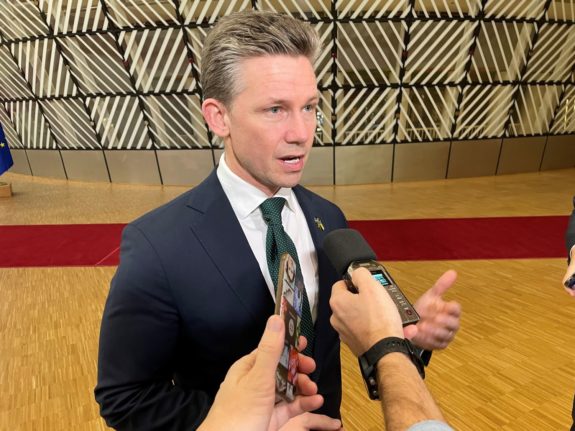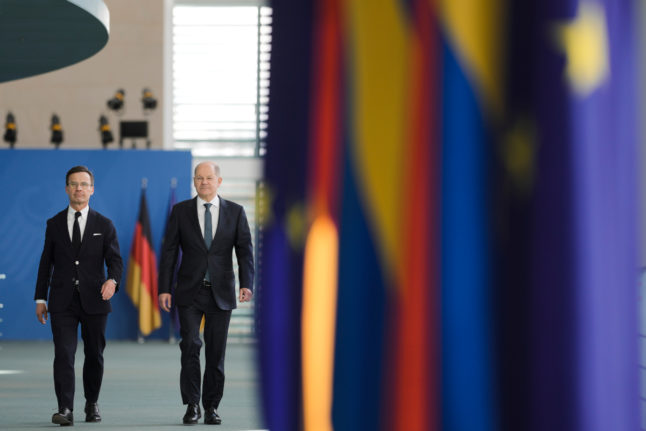“Obviously, we welcome this news,” Swedish defence minister Pål Jonson told reporters on Tuesday. “It is in line with the agreement we had with Turkey in July that ratification would occur as soon as possible. We need to become members as soon as we can.”
A source speaking to TT newswire said that Turkish President Recep Tayyip Erdogan would be in Berlin on Friday and was hoping to have positive news for German chancellor Olof Scholz.
If there are no delays to the process, the Turkish parliament could ratify Sweden’s application next week, on the 20th or 21st of November.
After parliament’s decision, Erdogan will have to formally approve ratification before the document can be sent to Washington.
Hungary and Turkey are the only Nato countries left which need to approve Sweden’s application, and Hungarian president Viktor Orbán has pledged previously that his country will not be the last to ratify.
If Turkey ratifies next week and Orbán keeps his promise, Swedish foreign minister Tobias Billström would be able to participate in Nato’s next meeting in Brussels on November 28th as a full member.
Hungarian minister Gergely Gulyás recently demanded that Sweden explain comments made by Swedish politicians about the state of Hungarian democracy, although the country has not formally said it will delay Sweden’s application further.
“We didn’t discuss it today, but the message has always been the same: that Hungary will not be the last country to ratify Sweden’s application,” Jonson said.
It is now a year and a half since Sweden applied for Nato membership.



 Please whitelist us to continue reading.
Please whitelist us to continue reading.
Member comments